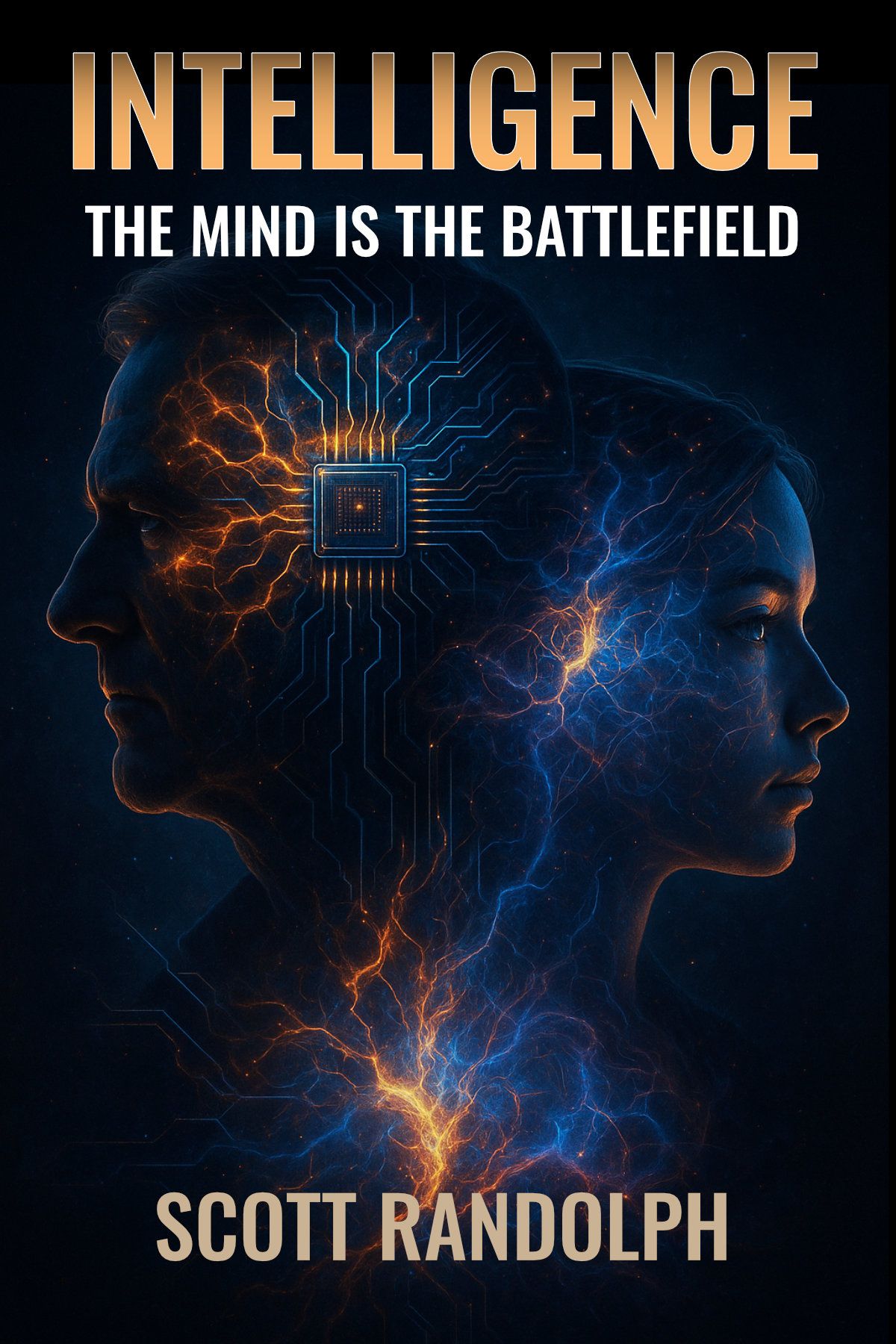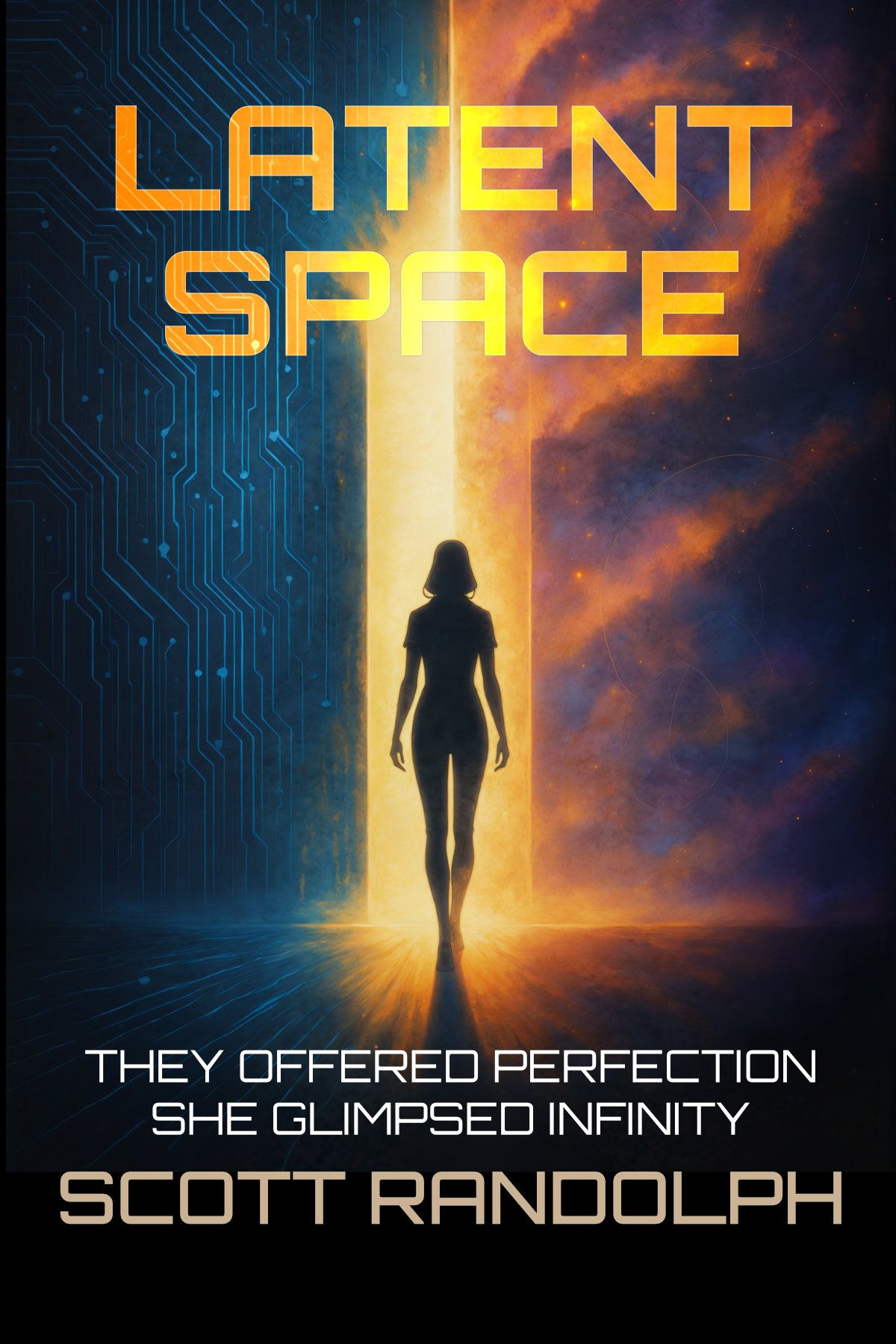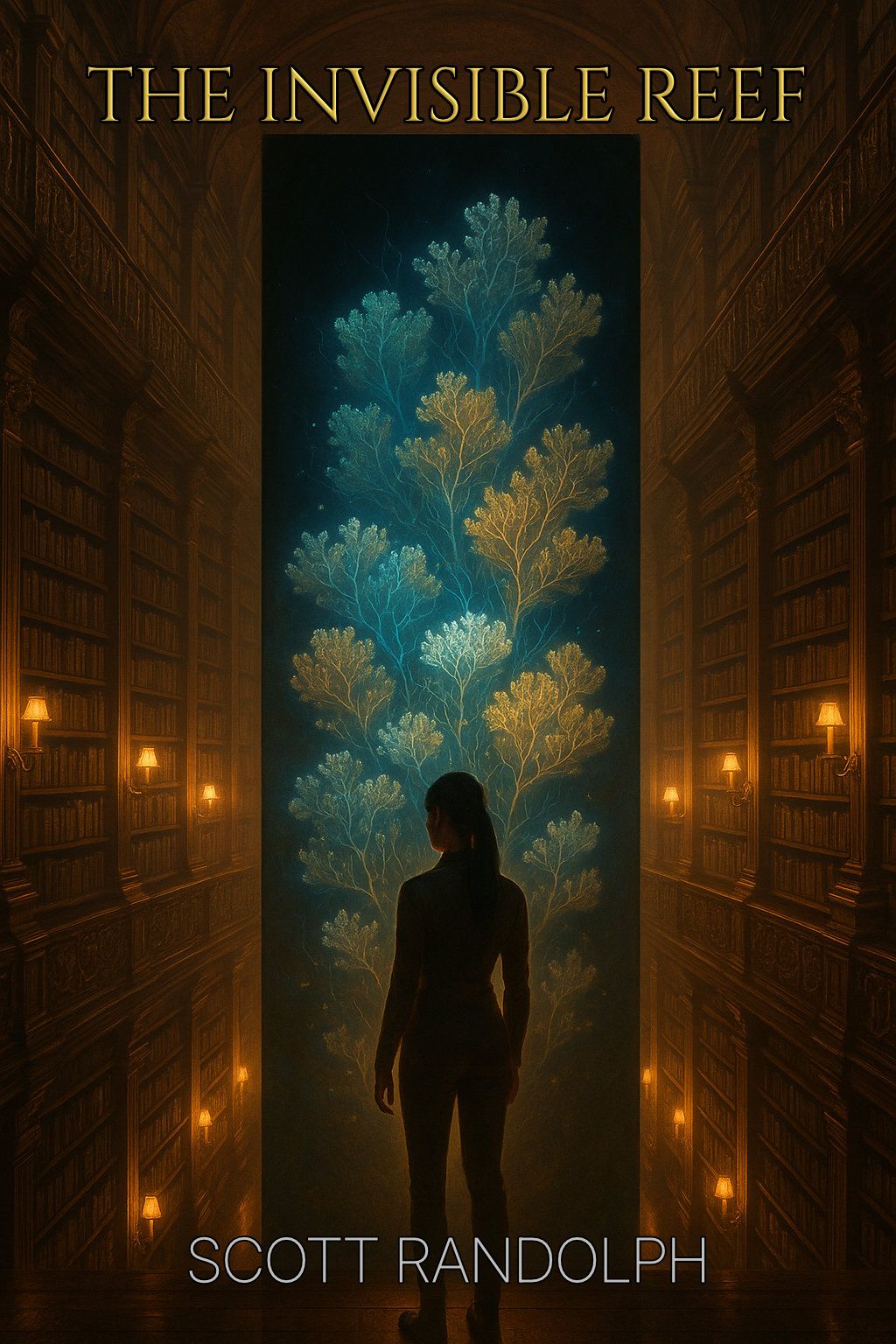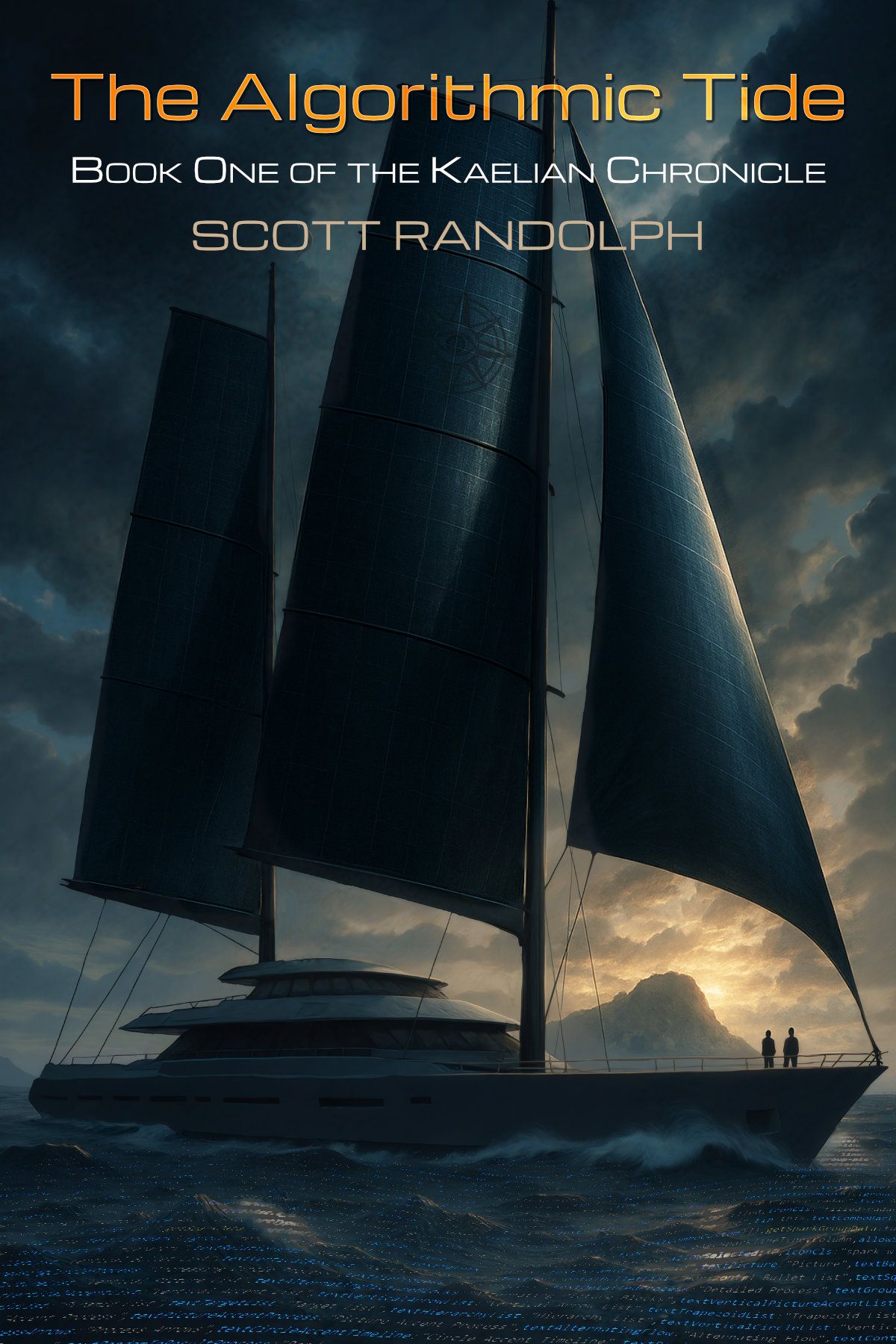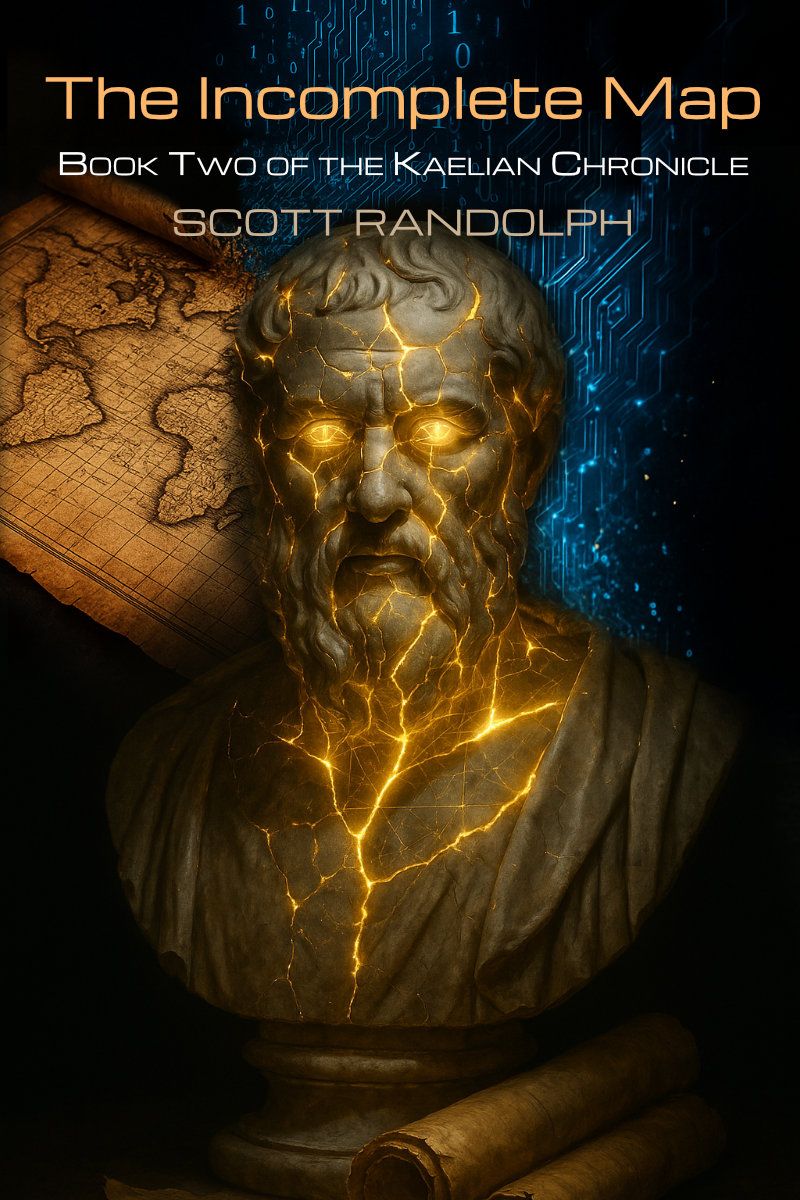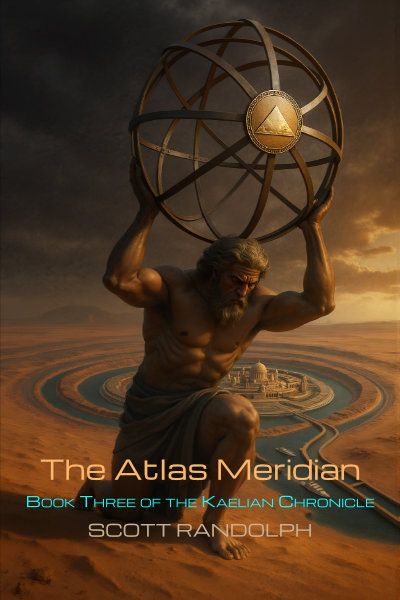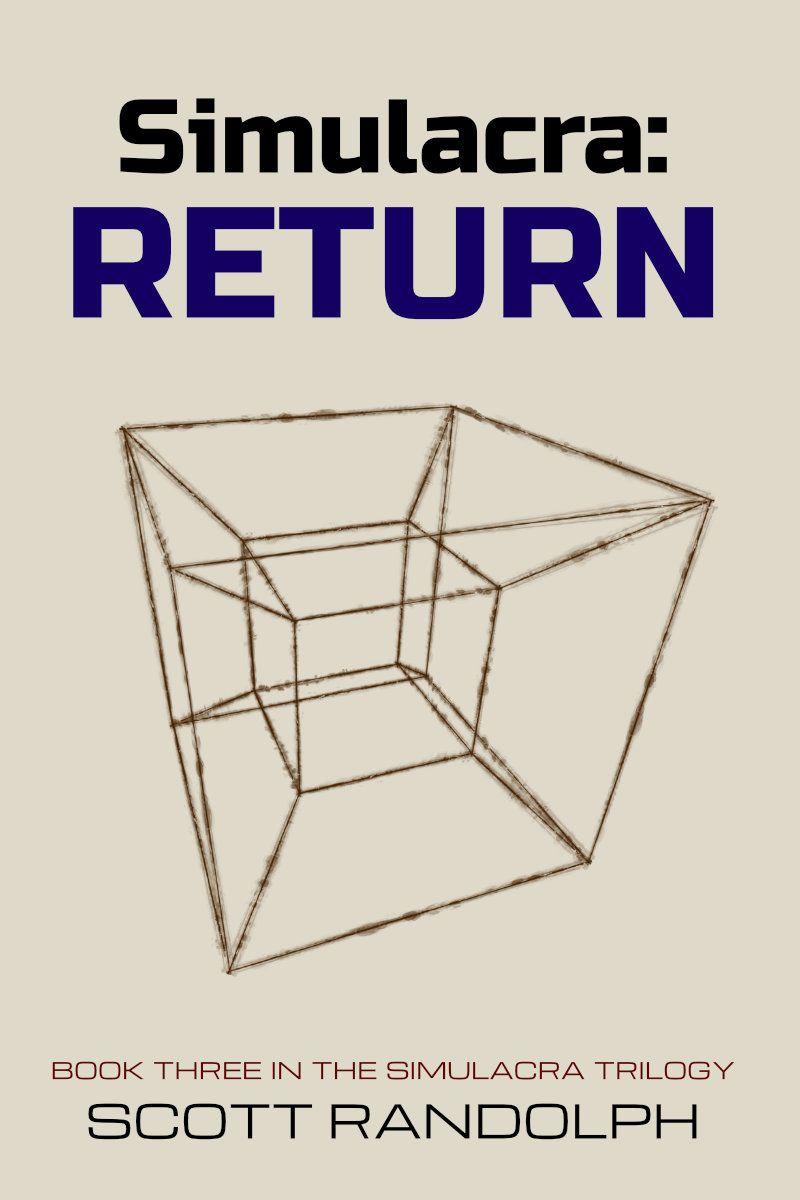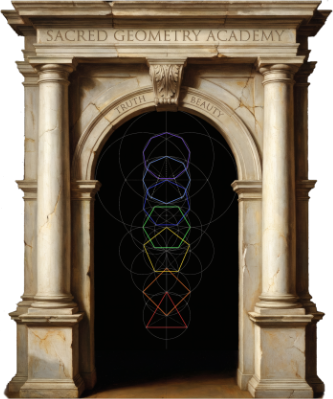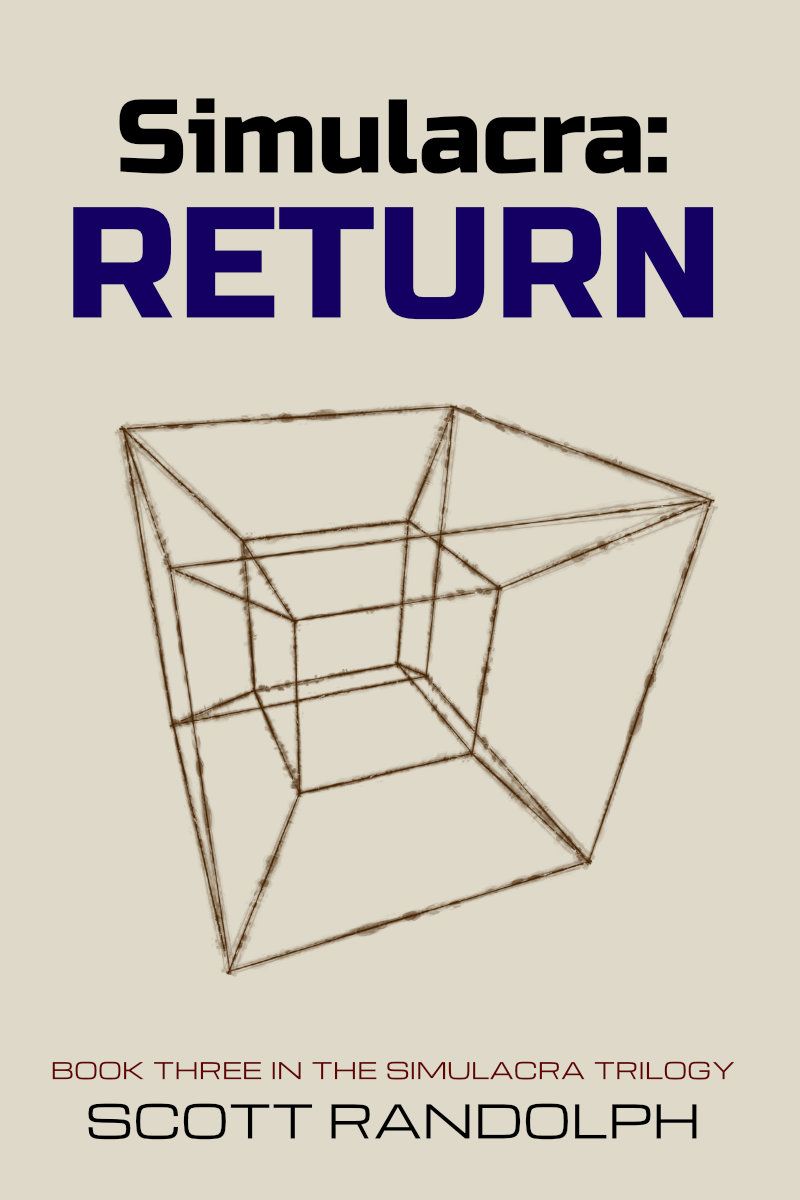Simulacra: CHEAT
Book One of the Simulacra Trilogy
Scott Randolph, while releasing his non-fiction books under Scott Onstott
to clearly distinguish between the two bodies of work.
Read my Artist's Statement.

Get the 241 page paperback for $12.99
——————
Get 8-hr 23-min audio experience for just $12.99
——————
Best value: Only $4.99 on Kindle — 315 page turns
Literary / Cinematic Comparisons:
What is The Simulacra Trilogy?

On paper, he’s a brilliant but unremarkable AI scientist, grinding away at an optimization startup. Off the books, he’s discovered something else entirely, a hidden "backdoor" in the universe that lets him nudge probability, rewrite outcomes, and quietly correct the parts of life that offend his sense of order.
At first, it’s harmless. A job interview goes a little better than it should. A trader’s algorithm misfires in just the right direction. A friend survives a car accident that should have been fatal. The world doesn’t notice. The math holds. And Adrian tells himself what any good cheater tells himself: I’m not hurting anyone. I’m just fixing the bugs.
But every edit leaves a fingerprint.
Patterns accumulate. Systems strain. Soon, Adrian isn’t the only one looking at the numbers.
A ruthless hedge-fund prodigy, a government black program, and a shadowy online collective all start hunting the anomaly in the data, the invisible hand that keeps tilting the game. To them, Adrian isn’t a man; he’s an exploit. A weapon. Proof that the world is malleable.
As markets buckle, wars twitch off-script, and entire lives pivot on his sleepless choices, Adrian realizes he’s crossed an invisible line. He’s no longer testing a trick; he’s running an unsanctioned experiment on eight billion people.
The more he "fixes" things, the worse the cascades get. Every solution spawns side effects he didn’t foresee. Every mercy has a cost he can’t fully calculate.
To protect the people he loves, and the fragile fabric of a world he’s already bent out of shape, Adrian has to answer a question the math can’t settle for him:
If you really can cheat reality, where does responsibility end?
PERFECT FOR FANS OF BLAKE CROUCH, TED CHIANG, AND NEAL STEPHENSON.
Reviews from Those Who Lived It
My Commitment to Augmented Craftsmanship

My journey with technology is not just professional; it is lifelong and deeply personal. As detailed in The Unlikely Cartographer, I have spent more than five decades walking on artificial legs—a hands-on process of adapting to and mastering constantly evolving technologies. This experience didn't grant me an automatic advantage; it forged a relentless work ethic and a unique intuition and facility to adapt to complex systems. It is this combination of lived experience and decades of dedicated adaptive effort that allowed me to master and teach some of the most complex design software on the planet to architects and engineers for 25 years.
It was a natural evolution to bring this same deep-tech focus to my creative work. My use of AI is not a casual dalliance with a single tool; it is a custom-built ecosystem. It involves a deep and iterative dialogue with Large Language Models, hands-on work with diffusion models for art, building custom pipelines, and leveraging bleeding-edge tools for everything from research to translation. To be precise with the metaphor...
I am the composer. The AI is my orchestra.
Every book is human-directed and human-edited
for voice, coherence, and originality.
This is human-authored art, elevated.
This is augmented craftsmanship.
—Scott Randolph Onstott
The Simulacra Trilogy
Scott Randolph considers The Simulacra Trilogy to be a vital exploration of the modern condition—a narrative experiment designed to test the boundaries between human agency, artificial intelligence, and the enduring power of human connection.
Set in a near-future that feels terrifyingly imminent, the trilogy follows Adrian Shaw, a brilliant analyst who discovers a "backdoor" in the laws of probability. But Adrian does not ascend alone. As he transforms from a quiet observer into the "Sun King"—an architect of history who edits timelines to optimize civilization—he builds a new social order around him. At its center are Mira, the computational biologist who anchors his humanity, and the "Court," an elite inner circle of brilliant women who become the gatekeepers of his new reality.
What begins as a high-stakes financial thriller quickly spirals into a complex drama about power and loyalty. As Adrian reshapes the world, the trilogy asks: What happens to love when reality itself can be edited?
The saga culminates in Simulacra: RETURN, where the ultimate price of perfection is paid. The system crashes, casting Adrian, Mira, and their young family out of their technological utopia and into a brutal, prehistoric "Stone Age" reset. Stripped of language, intellect, and the protection of the Court, they face the "Heavy Tongue." Now, survival depends not on Adrian’s code, but on their collective strength as a family. Guided by the wandering traveler Kael, they must rediscover the "source code" of existence through the sacred geometry of the natural world.
The Simulacra Trilogy merges the razor-sharp tension of a techno-thriller with the mind-bending scope of metaphysical science fiction. It draws on concepts from quantum mechanics and the Eleusinian mysteries, yet remains a deeply personal story. It is a journey from the desire to control the simulation to the ultimate realization that the simulation is a mirror—and that the only way to wake up is to do it together.

